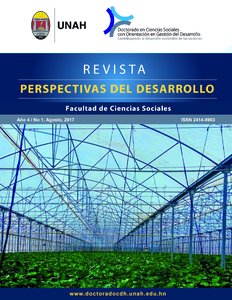Trends of demographic transition in Honduras and its incidence in development
DOI:
https://doi.org/10.5377/rpdd.v4i1.9385Abstract
Demographic studies are important because they allow you to plan new programs, evaluate impacts, identify problems with projection, etc. For the benefit of the population. In the historical development of the demographers they have been able to determine three explanations (theories) that have to know and understand the behavior of population growth, these explanations, relevant demographic approaches of the real world, stories such as demographic transition theory, The second demographic transition and reproduction reproduction theory. These theories seek to reduce sociodemographic risks by investigating, explaining and projecting fertility behavior, mortality and demographic growth. The demographic behavior in Honduras is that fertility has a downward trend, according to projections within two decades, fertility in Honduras will not reach the replacement level, which will lead to the end of the demographic bonus and decades after the entry Of the winter Demographic The fall of fertility is influenced by the entry of postmodernity, which is determined by the upward behavior of the demographic variables: Schooling, labor market, contraceptive use, first sexual intercourse, etc. The indicators of these variables indicate that the demographic transition is affecting the postmodernity of Honduran families; It requires the attention of academics, government and all organizations that promote development to creating strategies or modyfing policies to address this future reality
Downloads
599
HTML (Español (España)) 490
EPUB (Español (España)) 175
MP3 (Resumen) (Español (España)) 186




